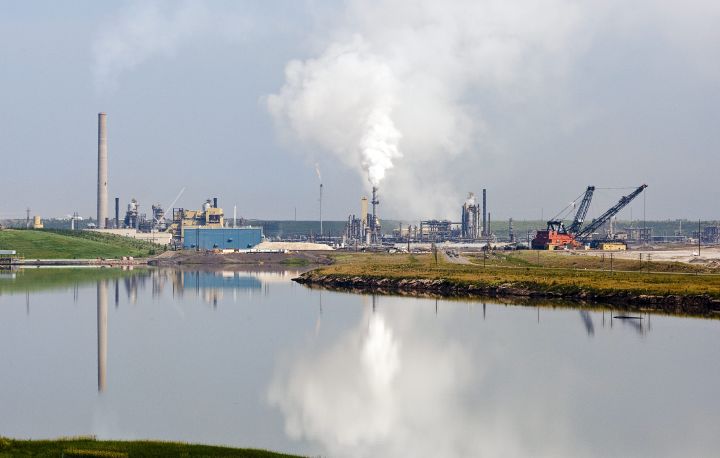Imperial Oil Ltd. says it will relinquish its contract to provide business management services to Syncrude Canada Ltd. when Suncor Energy Inc. takes over as operator of its oilsands mine and upgrader works at the end of 2021.

Under the contract, which has been in place for about 14 years, staff from Imperial were seconded to certain positions at Syncrude and provided people to assist in implementing strategies, while Syncrude remained the day-to-day operator.
On Tuesday, Suncor, which has a 58.74 per cent stake in Syncrude, announced it had agreed in principle with partners Imperial (25 per cent), CNOOC Oil Sands Canada (7.2 per cent) and Sinopec Oil Sands Partnership (nine per cent), that it would become the operator.
READ MORE: Suncor agrees to begin operating Syncrude by end of 2021
“Imperial continues to provide operational, technical and business management services to Syncrude under the management services agreement. A transition plan is being developed,” Imperial spokeswoman Lisa Schmidt said in an email on Wednesday.
Suncor and Syncrude recently completed a project to add pipelines connecting Suncor’s Base Plant with Syncrude’s operations. The project is expected to improve efficiency by providing options for each mining and upgrading operation in the event of planned and unplanned production outages.
Switching operatorship at Syncrude is a sign of the evolution of the oilsands mining industry from a high-cost venture with risky, unproven technology to one that’s much more proven and predictable, said Joe Doucet, dean of the Alberta School of Business at the University of Alberta.

Get weekly money news
He pointed out that when Suncor opened Canada’s first oilsands mining project in 1967 and Syncrude followed 11 years later in 1978, there were doubts about whether the remote projects would be successful. Forming partnerships became a way to share the risk.
READ MORE: Canada Energy Regulator projects there may be no need for Trans Mountain pipeline expansion
“When Syncrude started producing in the late ’70s, I think it’s fair say in hindsight there was a fair bit of technology risk. You know, ‘would this really work?”’ he said.
The two mining projects have competed with each other for labour and inputs but because the companies involved don’t control the price of oil, competition is less intense than it would be in manufacturing, for example, Doucet said.
Since 2016, Suncor has increased its ownership in the Syncrude venture from 12 per cent to 58.74 per cent.
It bought Canadian Oil Sands and its 36.74 per cent stake in 2016, adding Murphy Oil Corp.’s five per cent a few months later. In 2018, it bought another five per cent stake from Mocal Energy Ltd., a subsidiary of Japan-based conglomerate Mitsubishi Corp.
Analysts commenting on the announcement were skeptical about Suncor CEO Mark Little’s pledge to improve Syncrude operational reliability to achieve an average of 90 per cent utilization and a cash operating cost per barrel of C$30 per barrel.
“The company believes it can drive average utilization rates to 90 per cent as compared to the five-year average of less than 80 per cent, with only six quarters (of the last 20) exceeding the 90 per cent target,” pointed out National Bank analyst Travis Wood in a report.
He said the cost target would represent a major change compared with Syncrude’s five-year average of C$39 per barrel and would be 10 to 20 per cent lower than recent Syncrude guidance.
CIBC analyst Dennis Fong noted that Syncrude has set similar targets in the past after investing in new operating procedures, maintenance, and supplemental equipment, but has missed because of unforeseen events including Alberta’s mandatory oil production curtailments and, this year, an extended maintenance shutdown due to pandemic-related safety measures.
READ MORE: Alberta to lift oil production curtailment at the end of 2020
Suncor says it hopes to realize cost-saving synergies of about $300 million per year by becoming the Syncrude operator.
Watch below: Some recent Global News videos about Suncor.










Comments